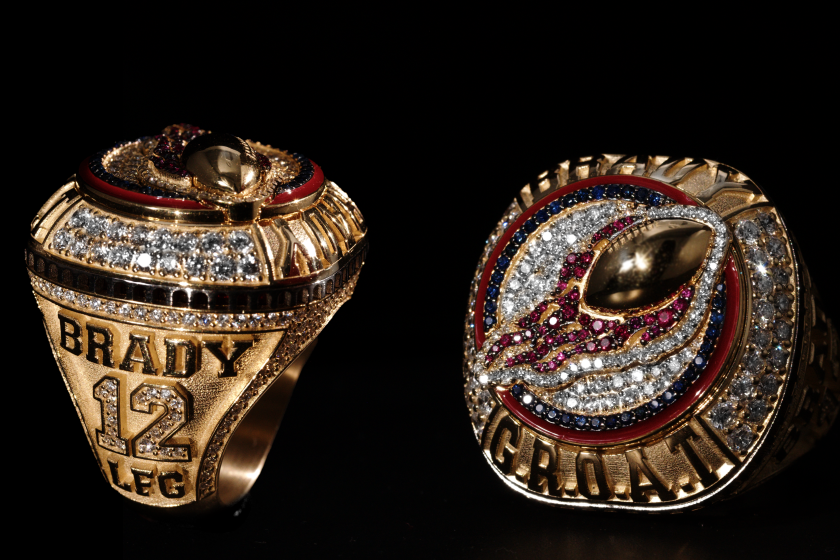GEORGE PAGE : The Mating Game
PBS’ “Nature” series begins traveling the globe this week in search of sex.
Now that we’ve got your attention ... “The Nature of Sex,” in six parts, shows how the planet’s life forms find their mates, conceive, raise and protect their offspring. Some creatures don’t need the opposite sex to reproduce. Others can be both sexes at once or even change from one to another. In the case of sea horse reproduction, the male becomes pregnant.
The miniseries is divided into six topics: “The Primal Instinct” offers an overview of sex in nature; “A Time and a Place” explores how cosmic forces influence courtship, mating and birth; “The Sex Contract” illustrates how males prove their worthiness to females; “Sex and the Human Animal” explores the evolution of human sexuality; “A Miracle in the Making” looks at the way animals mate; and “The Young Ones” focuses on life after sex.
Times Staff Writer Susan King discussed “The Nature of Sex” with George Page, the host and executive editor of PBS’ long-running “Nature” series.
Is it true “The Nature of Sex” was four years in production?
It’s been in the works for a long time. It was a tough one. A lot of the filming was a challenge. It was just a tremendous editorial challenge to do this subject with some taste and discretion. I hope we’ve been able to accomplish that, even though some of it’s very explicit.
As we have done profiles of various animals over the years on the “Nature” series, we have sort of always covered the sexual aspect, because it’s such an important part of the whole study of animal behavior. We felt it deserved a series of its own.
One thing that comes across in the miniseries is that when it comes to sex, humans are very similar to other members of the animal kingdom.
We are alike in a lot of ways and very, very different in a lot of ways. For example, the whole gender question is extremely interesting and I think comes through in the series. In most species, it’s a female choice (for a partner). We humans may think we have a male-dominated society and males may think that, even though the whole relationship between the battle between the sexes is changing. In so many of the animal societies, it really is the female who calls the shots.
The elephant, for example, is very much a matriarchal society. The female elephant is really the head of the family and keeps the family together. The bulls tend to go off, form bachelor groups and are involved with the females when it’s mating time. Even the great burly lion, which is supposed to be the symbol of masculinity, is, in fact, just a lazy son-of-a-gun who lets the female do all the hunting.
You see this kind of thing throughout the animal kingdom right down to the insects--the preying mantis who chops off the head of her suitor after she’s mated with him and eats him. On the other hand you do see the birds who mate for life. The penguins are incredible. They are thousands of miles at sea and then they are able to come back and find their mate. I found that absolutely extraordinary, mind-boggling, to think they can do that. They so strongly want to find their own mate, as opposed to any of the other attractive potential partners who might be around at the time.
It seems that males often have to take care of the children.
The reversal of gender roles and the enormous variety of gender roles in the animal kingdom is really interesting. It does sort of make us think that humans got it sort of backward. Certainly, the whole Judeo-Christian tradition history has been the dominate male and the submissive female. I think we’re probably learning among humans and certainly other primates that’s not necessarily true.
There’s a tremendous diversity and variety in terms of parenting. I think you’d have to say, from a scientific point of view, any species that’s around now and has survived for millions or thousands of years clearly is doing something right when it comes to parenting no matter how they do it, otherwise they wouldn’t be around. Clearly, a lot of the methods work very well in the animal kingdom.
Some of them are bizarre, like the male sea horse giving birth to the young and looking after them. In general, the so-called lower forms of life, whether it is squid or insects, they tend not to do a lot of parenting. In many cases, none at all. They lay many eggs or produce a huge number of young. Enough survive and don’t get eaten by other creatures. It’s a numbers’ game with them. As you tend to go up the scale of animal life, the more it tends to do real parenting.
The bonobo chimps certainly have an interesting and active sex life. Can you talk about it?
They have sex a lot and in a lot of different ways: males with males and females with females and even the young ones get involved. The interesting thing about the bonobo chimps--apparently sex allows them to vent their aggression and get rid of their hostility. Among chimps, they’ve by far the most peaceful family life. The other chimps tend to be considerably more aggressive. The conclusion of the people who have been studying these chimps is that at least in their case, sex is a way of working off aggression and living in surprising harmony with each other.
“Nature: The Nature of Sex” airs Monday-Wednesday at 9 p.m. on KCET and KPBS .
The complete guide to home viewing
Get Screen Gab for everything about the TV shows and streaming movies everyone’s talking about.
You may occasionally receive promotional content from the Los Angeles Times.




